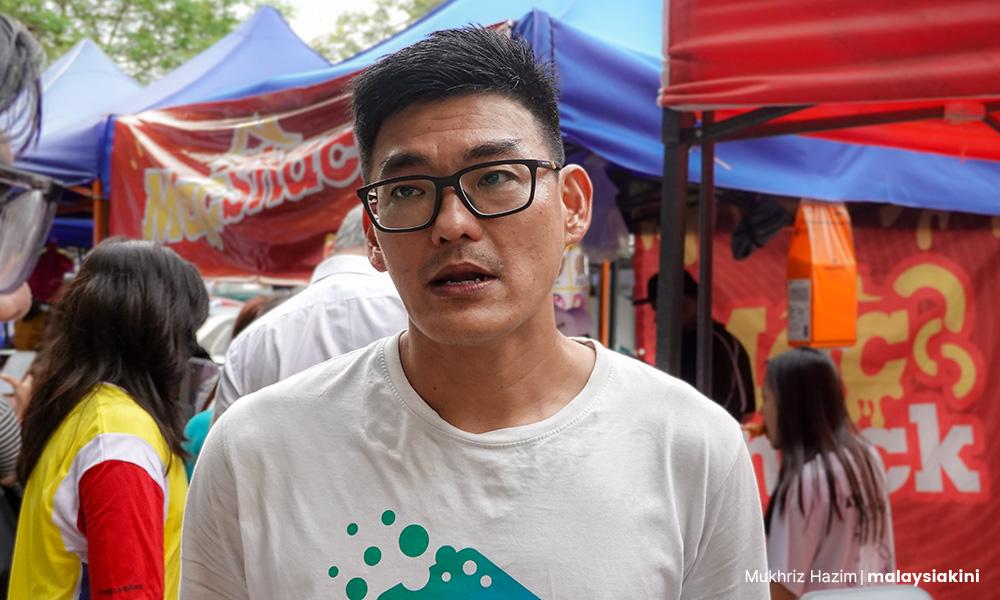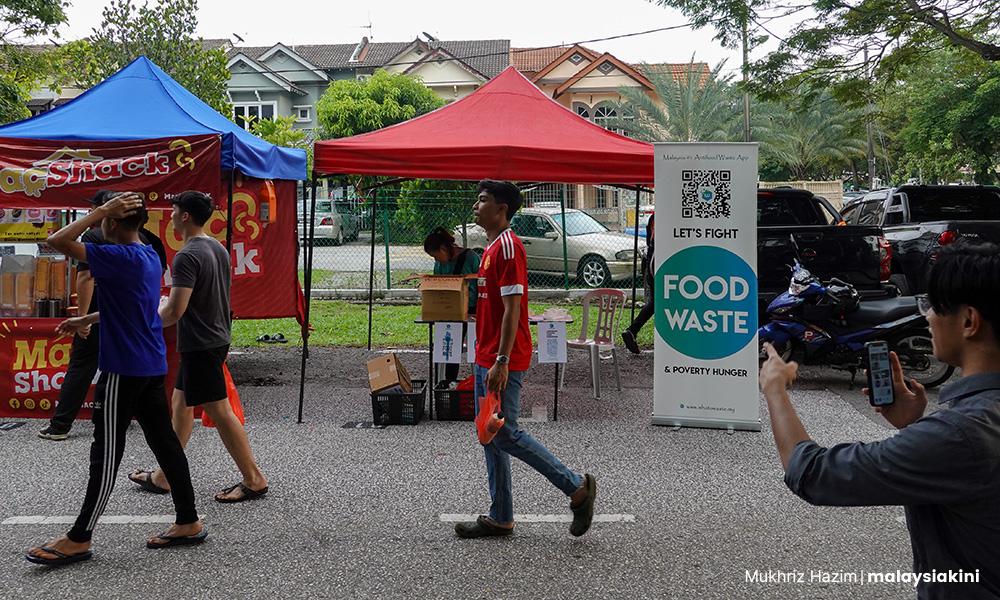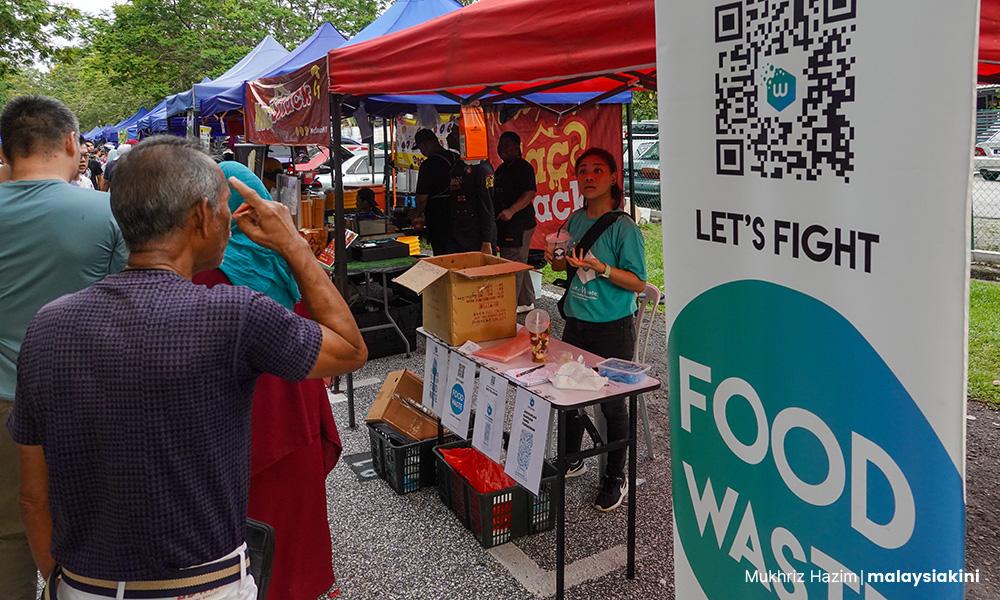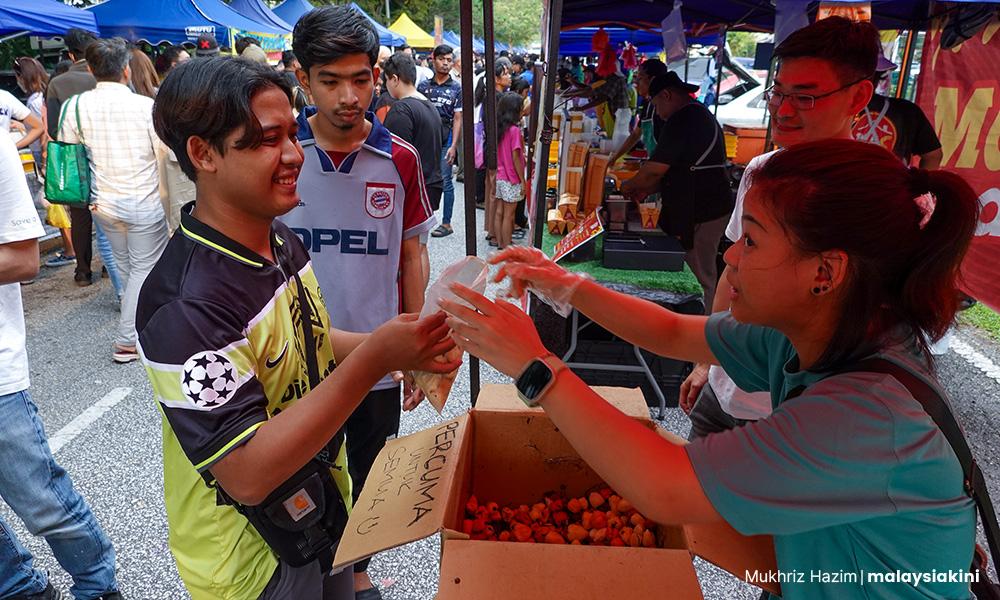The issue of unsold food at Ramadan bazaars inspired the What a Waste (WaW) organisation to collect surplus food for distribution to those in need.
Themed “Make Ramadan Waste-Free”, this initiative is being implemented in six Ramadan bazaar locations in Selangor, namely in USJ4, USJ7, Pinggiran Subang 1, SS19, Puchong Indah, and Putra Heights.
WaW founder Alvin Chen said most traders welcomed the idea by registering themselves as WaW partners through an app.
“All our vendors have registered. They’ve been a lot of help.
“With cooperation from all vendors, surplus food will be uploaded to the app daily,” he explained during a visit to the USJ4 Ramadan bazaar in Subang.

Chen mentioned that unsold surplus food would be placed in the WaW tent before being distributed by their team to those in need.
In addition to iftar meals, WaW also distributes raw materials such as vegetables to the less fortunate.
“There will be different food every day. Today we have jalapeño peppers. We know these are expensive in the market,” added Chen.
WaW targets the B40 and M40 groups in need as well as the asnaf (zakat recipients).
Positive feedback
Malaysiakini interviewed some of the traders and they gave positive feedback about the initiative.

Pastry seller Ainn Abas said the initiative helps prevent unsold food from being wasted.
“In my view, this is a good effort. Instead of wasting food, it’s better to donate to those who need it.
“If not given to people, we would donate surplus food to the mosque. But with WaW, our process is made easier," she said.
Meanwhile, chicken seller Zarina Zakaria said working with WaW has been beneficial and the app made the process easy.
“This programme benefits the public. When we give unsold food to WaW, they will distribute it to those in need,” Zarina said.
A Ramadan bazaar visitor, Akmal Arief, said the programme helps alleviate the burden on the less fortunate such as himself.
“I was surprised to be offered these jalapeño peppers.
“Even if it's just peppers, it's hard to get them because of their high price in the market. I feel fortunate,” he said.
Digitalisation
Chen further said cooperation with the Subang Jaya City Council (MBSJ) allows WaW to expand its initiative more effectively.

“This year, we were asked to reach a wider area. But to do it physically would involve a lot of costs and manpower.
“So, we took the opportunity to digitalise all WaW operations,” he said.
He mentioned that previously, they had to collect and weigh unsold surplus food and transport it from one place to another.
However, with digital methods, they can know the weight of the surplus food based on pictures received from traders after their business operations end.

The distribution of food to those in need is also made easier with the digital method developed by the organisation.
“Now we only contact the target group as early as a month before the programme, then their representatives can come here (collection point) to pick up the food,” Chen told Malaysiakini. - Mkini




No comments:
Post a Comment
Note: Only a member of this blog may post a comment.